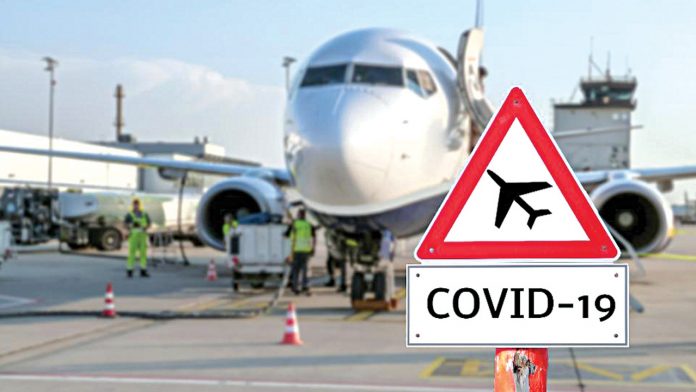Airports Council International (ACI) World data has revealed that global passenger traffic declined by an unprecedented -94.4% year-over-year in April as a result of the unfolding COVID-19 pandemic. This followed an already dramatic drop of -55.9% in March, representing the worst decline of global passenger numbers in the history of the aviation industry.
Global passenger traffic experienced an overall drop of -41.8% for the first four months of 2020 with the 12-month rolling average for the global industry continuing to decline – it was recorded at -11.3% by the end of April, without signs of consistent recovery in the future months.
The effect on the air freight industry was still not yet as significant in April when compared to the passenger market. Global air freight volumes declined by -22.6% compared to April 2019 resulting in a -10.8% drop for the first four months of 2020. The global 12-month rolling average continued its negative trend to sit at -5.3% by the end of the month.
In the face of these losses, airports in some regions are now embarking on the first steps in restarting operations and make plans for a sustained, long term recovery. To underpin this recovery, ACI World has said that financial assistance and relief is needed to safeguard essential operations and protect millions of jobs generated by the airport industry and all sectors in the ecosystem. Airports are key generators of sustainable economic development and the impact in the communities they serve have been catastrophic.
ACI collects and analyses data from a significant sample of airports that provide regular reports on monthly passenger and air freight statistics, forming part of the world’s most comprehensive source for airport data.
“April was devastating for the aviation industry as global air travel almost came to a complete halt as national governments made unilateral decisions to implement strict confinement measures in the second week to contain the COVID-19 outbreak heavily affecting the movement of passengers,” ACI World Director General Luis Felipe de Oliveira said. “Coordinated actions must be planned in supporting the industry restart to avoid the lack of coordination we faced as the restrictions were first applied on travel around the world
“As in previous months, global air freight volumes have not been affected to the same extent as passenger traffic. Recently converted passenger aircraft into temporary freighters helped the cargo industry to move time-sensitive shipments and vital supplies, including urgent medical supplies, and goods to support the global economy.
“There were some early signs in April was the lowest point of the crisis and the beginnings of recovery could be seen in April’s figures for the Asia-Pacific, but the recovery remains uncertain.
“Airports, like other industry sectors, need urgent relief and assistance to help them as they begin to restart operations, to navigate the far-reaching economic ramifications of the crisis, and help lay the foundation of a balanced recovery. Any policies supporting the reduction of income from airports or a blanket slots waiver will damage the ability of airports to lead the industry recovery which includes several sectors working within the airports ecosystem.
“Airports continue to face high fixed costs, rising costs related to health measures at airports, and the challenge of creeping increases in the cost of capital. ACI World believes Government assistance is needed to address these costs, to help safeguard essential operations, and protect millions of jobs.
“Indeed, ACI and IATA recently called for the cost of any health measures that are required to be borne by governments.”
















